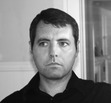Jan Hus
Prague Unbound considers Bohemia’s most famous heretic…

Heretic Jan Hus, the first reformer of the Catholic Church, had arguably more influence on the history of greater Europe than any other figure in Bohemia. By his 30s, the former Charles University student had become the most popular preacher in the city, with thousands gathering each week at the unadorned Bethlehem Chapel to hear his sermons, during which he often decried corruption and ideological hypocrisy within the Catholic Church. Among his beliefs that found popular support was that all Christians, not just the clergy, should be allowed to partake of the eucharistic blood of Christ. Hussite followers thus adapted a golden chalice as their symbol – a symbol which may still be seen in various forms throughout Prague (Jaroslav Hašek’s Good Soldier Švejk drank at a pub called U kalicha – The Chalice).
For his beliefs, Jan Hus quickly ran afoul of Rome and in 1411 was excommunicated by Pope Alexander V. But with the backing of King Wenceslas, Hus continued preaching, attacking Rome’s decree that all those who agreed to either fight in or fund the Crusades would be fast-tracked to Heaven, all sins forgiven. Enraged, the Pope ordered the Bethlehem Chapel be destroyed, but fearing a massive public revolt, Prague authorities refused.
Wishing to end the schism, Hungarian King Sigismond promised Jan Hus safe passage to meet the Papal authorities in Constance. But once Jan Hus arrived, the Pope’s people went back on their word. Hus was imprisoned in the dungeon of a Domincan monastery and put on trial, where refused to recant his writings and teachings. On July 6, 1415, Jan Hus’ hands were bound behind his back, his neck chained to a stake in the ground and he was burned at the stake. Following his death, his skull was crushed and all his bones broken. His heart was cut out and roasted again on a sharpened club, with his ashes eventually being dumped into the Rhine River. The river was then beaten and set on fire (not really, but you get the idea.).
News of his execution wouldn’t reach Prague for nearly half a decade, but it eventually sparked the Hussite wars, which lasted 14 years, devastated much of Bohemia, and ended with neither side achieving victory (on the plus side, the wars gave one-eyed warrior Jan Žižka ample outlet for his marauding and throwing-people-out-of-windows skills).
In 1999, fully 583 years after Hus’ death, Pope John Paul II apologized to the people of the Czech Republic for the execution of Jan Hus, saying it was a regrettable mistake.
Oh well, better late than never.
(Photo via Paul Holloway)



